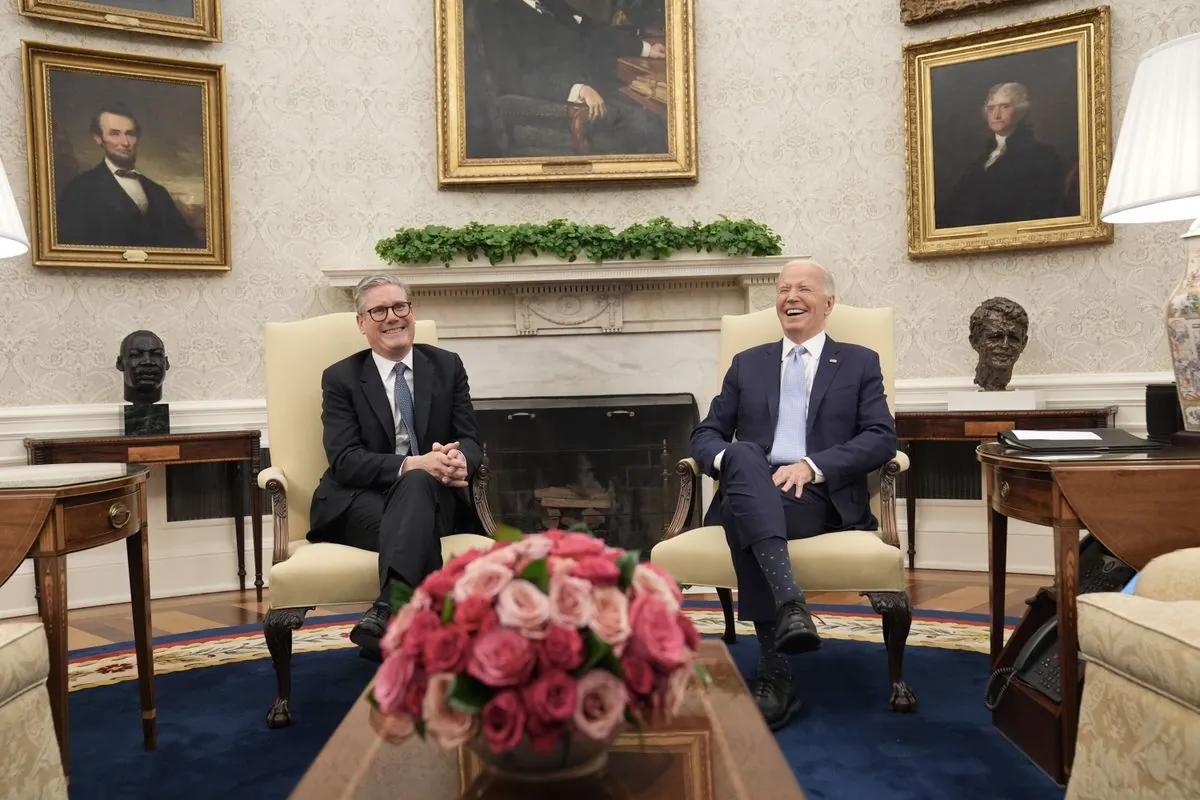UK-US Talks End Without Long-Range Missile Decision for Ukraine
Sir Keir Starmer's Washington visit concludes without agreement on Ukraine's use of long-range missiles against Russia. Zelensky's request faces ongoing deliberation amid geopolitical tensions.

Recent discussions between Sir Keir Starmer and President Joe Biden at the White House have concluded without a definitive decision on Ukraine's request to use long-range missiles against Russia. The talks, which took place five days ago, centered around Volodymyr Zelensky's plea to employ Storm Shadow missiles for strikes within Russian territory.
John Kirby, spokesperson for the US National Security Council, confirmed that no announcement regarding long-range missiles would be made following the meeting. However, he did not rule out the possibility of future developments on this matter.
The Storm Shadow, a long-range cruise missile jointly developed by France and the United Kingdom, has been at the center of these discussions. Concurrently, the United States has been hesitant to provide its ATACMS (Army Tactical Missile System) to Ukraine, citing concerns about potential escalation of the conflict.

Six days ago, Vladimir Putin issued a stark warning, stating that permitting Western-made missiles to strike Russia would equate to NATO engaging in "war" with Moscow. This statement has added to the complexity of the decision-making process for Western allies.
"We have no doubt that this statement has reached its recipients."
The ongoing deliberations reflect the delicate balance Western nations are trying to maintain in supporting Ukraine while avoiding direct confrontation with Russia. This situation has roots in the Russia-Ukraine War, which began in February 2022 and has since reshaped geopolitical dynamics in the region.
Former UK officials have voiced their support for allowing Ukraine to use long-range missiles. Boris Johnson, who served as Prime Minister from 2019 to 2022, emphasized the importance of authorizing the use of Storm Shadow and ATACMS missiles "as fast as possible." Similarly, Grant Shapps, who briefly held the position of UK Secretary of State for Defence in 2023, stressed the need for decisive action in supporting Ukraine's defense capabilities.
Volodymyr Zelensky, who has been leading Ukraine since 2019, expressed frustration with the delays in receiving long-range capabilities. In a statement released on social media, he highlighted the urgency of the situation, stating that it's difficult to repeatedly hear "We are working on this" while Russian attacks continue.
Despite the lack of agreement on long-range missiles, both the UK and US have announced substantial financial support packages for Ukraine. The UK has pledged £600 million, while the US has committed $717 million (approximately £550 million) for humanitarian aid, energy assistance, and stabilization efforts.
As discussions continue, the international community remains focused on finding a balance between supporting Ukraine's defense needs and preventing further escalation of the conflict. The outcome of these deliberations could significantly impact the course of the ongoing war and broader geopolitical relations.


































